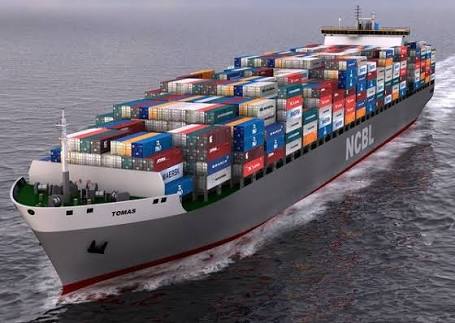
By Eguono Odjegba
Industry stakeholders have appealed to the Minister of Marine and Blue Economy, Senator Adegboyega Oyetola, not to go ahead with the purported plans aimed at seeking presidential approval that will allow seaport terminal operators take over the function of the scanning of cargo, noting that the idea is not only retrogressive but could cause major reverses in gains already made in the ports industry.
The stakeholders who were reacting to feelers at the just concluded National Dialogue on the theme “Sailing to Success: Harnessing Nigeria’s Maritime Potential”, during which Oyetola reportedly canvassed the decentralization of the cargo scanning system, advised the minister to focus on consultation in the immediate time and leave out pronouncements on critical industry matters.
The minister’s position which supposedly flowed from complaints by industry stakeholders about perceived lack of adequate scanning machines and or identified deficiencies in their management, formed the nucleus of takeaway from the 29th National Economic Summit Group (NESG). Speaking on the efficient administration of the scanning machines during the NESG programme, the National President of the Association of Nigerian Licensed Customs Agents, Mr Emenike Nwokeoji, lamented that cargo clearance in Nigerian ports was still a far cry from global standards.
The ANLCA leader noted perceived inconsistency in the rules and guidelines relating to cargo clearing process, like the cancellation of rerouting, generally adjudged by clearing agents and freight forwarders as time saving; as against the prevailing practice where a cargo must arrive before clearance processes commence.
He was also believed to have lamented lack of scanners as well as delays in cargo clearance, all of which he reportedly said engenders corruption and escalates costs of doing business at the port.
However rather than consult more widely on the issue, Oyetola pledged to seek the intervention of the presidency to grant approval for terminal owners to own and operate cargo scanners, despite that the Nigeria Customs Service, last year, spent hundreds of millions of naira to build and install a number of functional scanners across formations and commands of the service.
Stakeholders posit that if the minister’s proposal is allowed to fly, it would cause major reverses in the system.
Foremost customs broker, Prince Olayiwola Shittu, said the best solution should be a careful study of the administration of all the regimes of past cargo scanners, which should serve as guide to making the right decision.
Shittu notes that the Nigeria Customs Service exercise prerogative on the due assessment of scanning results, a position he opined cannot be negotiated or wished away.
“I agree with you, it will bring conflicts and the Customs position in the matter of scanned goods is superior to that of the terminal operators”.
But slightly aligning with the ministerial idea, former National President of NAGAFF, Eugene Nweke, said in global practice, cargo scanners can be operated from anywhere in the world, noting that Nigeria Customs should restrict itself to the interpretation and analysis of scanned images, by having a pool of well trained and professionally knowledgeable men in scanning analysis.
He stated: “You could recall that I already outlined some of these issues in the previous write ups l sent as an advice to then CG Hameed Ali. And my position was that, depending on what the government wants the Customs to achieve with scanner installation, is the objective for security or trade facilitation? If not, professionally scanner can be installed anywhere in the world and scan images transmitted to the Customs at whatever destination, this is the beauty of ICT.
“In this regards, what our Customs should do is to master the act of analysis of scanned images submitted to them to determine the status of goods, where trade facilitation is the objective of scanner installations, if it is security, then, it goes beyond that.
“In the past it was the Scanner Service Providers that operated these scanners, such as Globalscan System, COTECNA, etc. Remember that former CGC, late Abdullahi Diko Inde, had issues with scanner service providers, which led to the management decisions to audit all the installed scanner and these pre-shipment inspection agents worked together and there was no problem until it was discovered that the scanners were all refurbished, and by that time he reported back to the Hon. Minister Okonjo Iweala and the President, the rest is now history.
“So what the minister of marine and blue economy seems to be driving at is to take us back to that era of Scanner Service.”
Disclaimer
Comments expressed here do not reflect the opinions of Vanguard newspapers or any employee thereof.